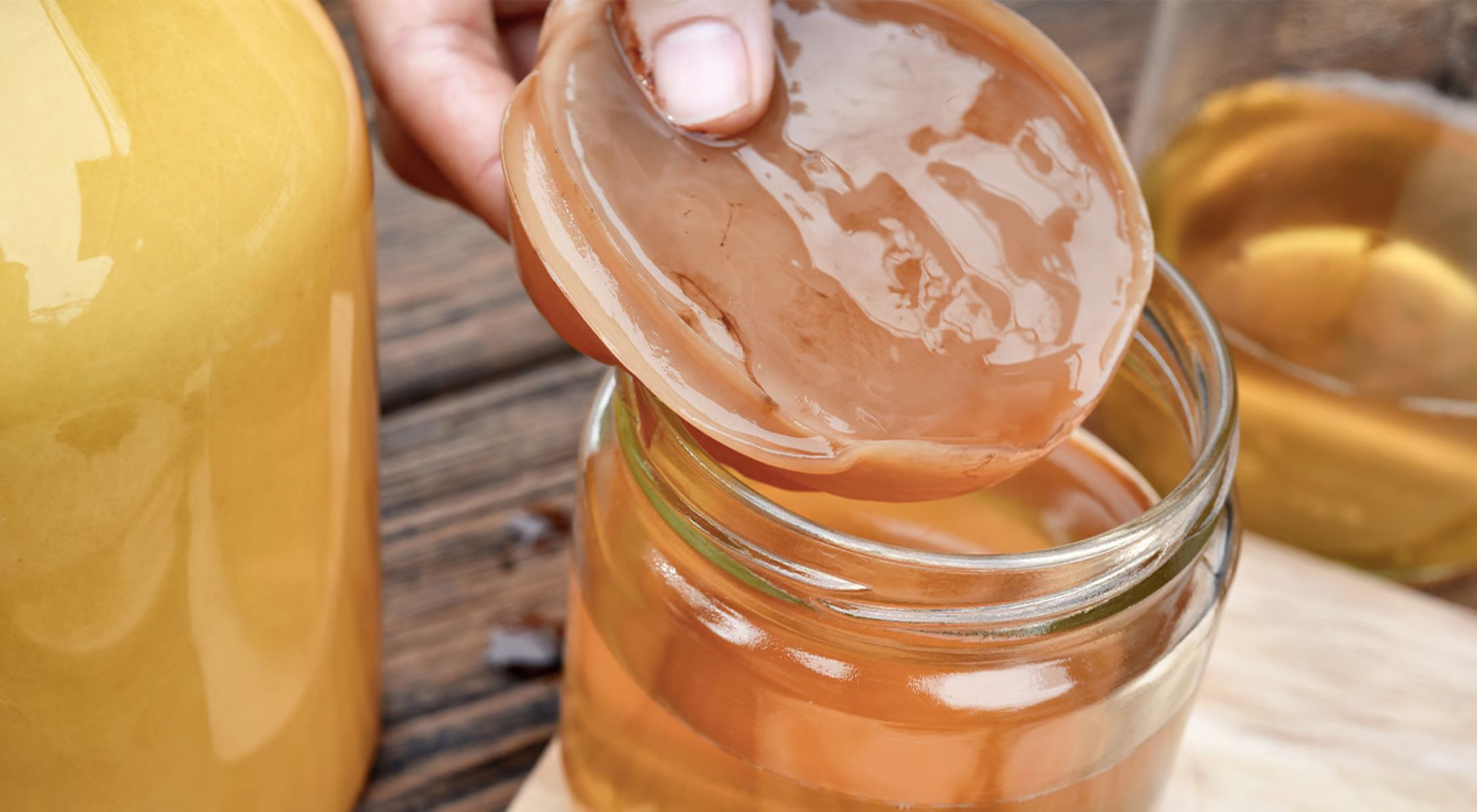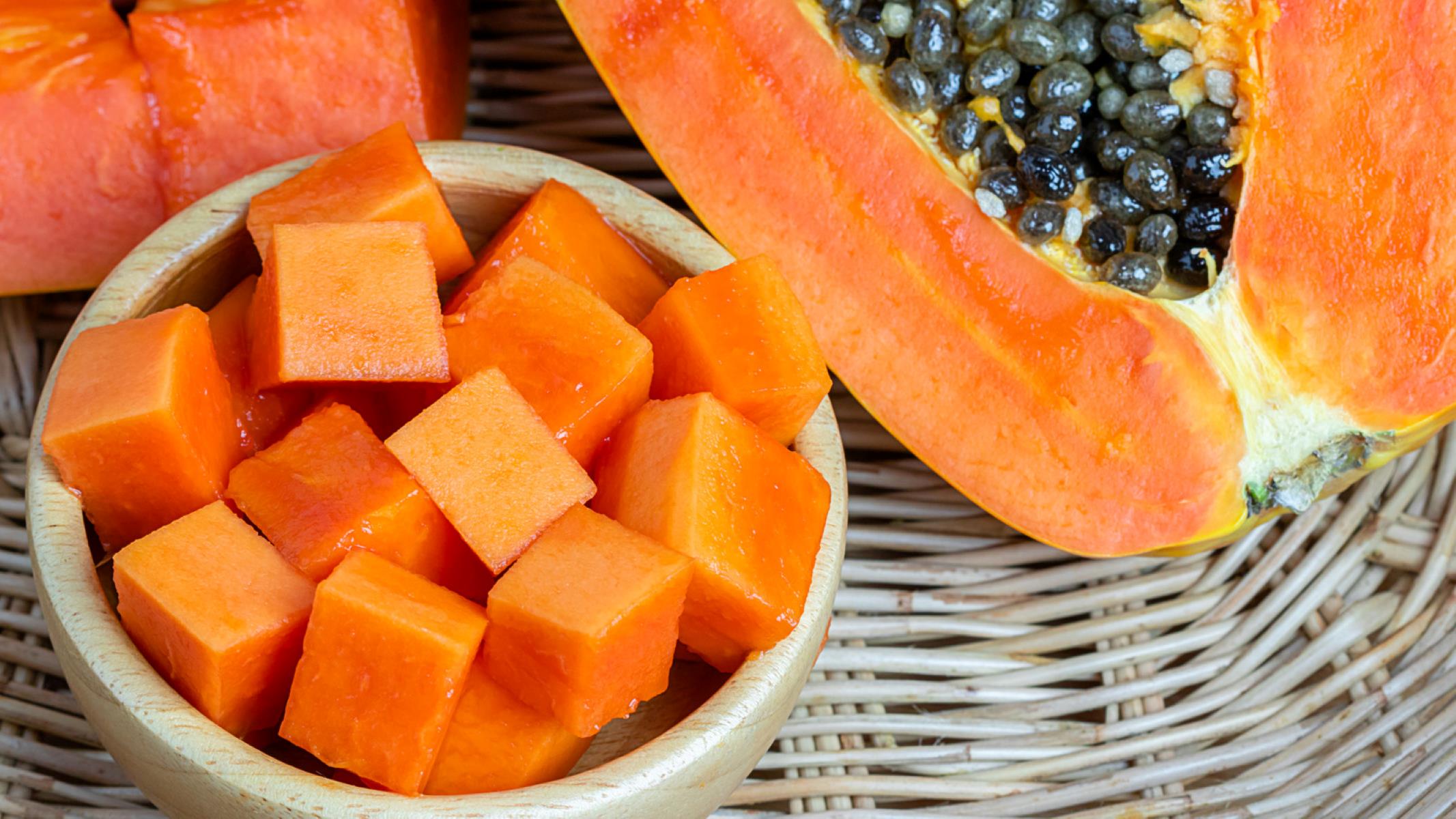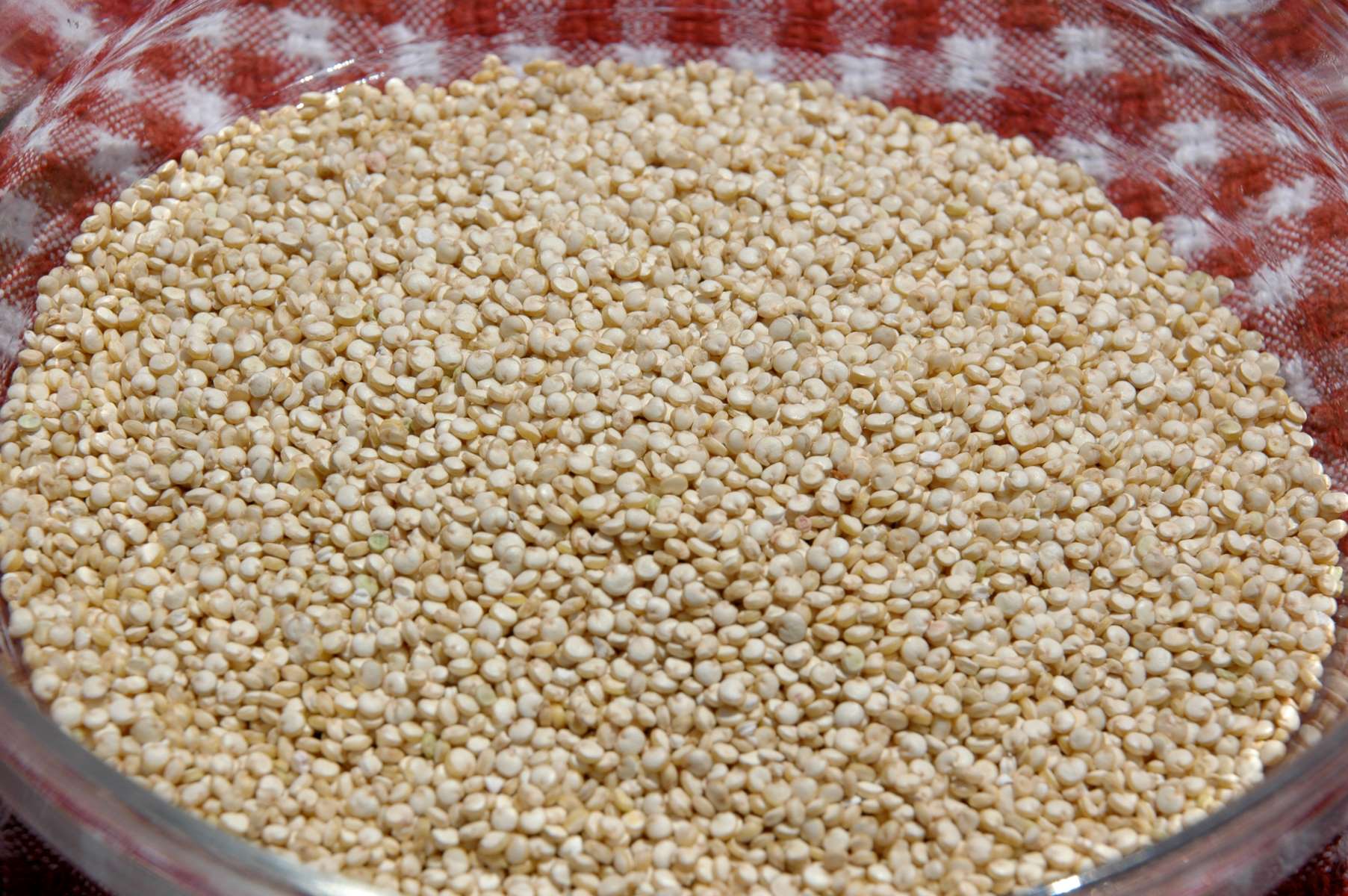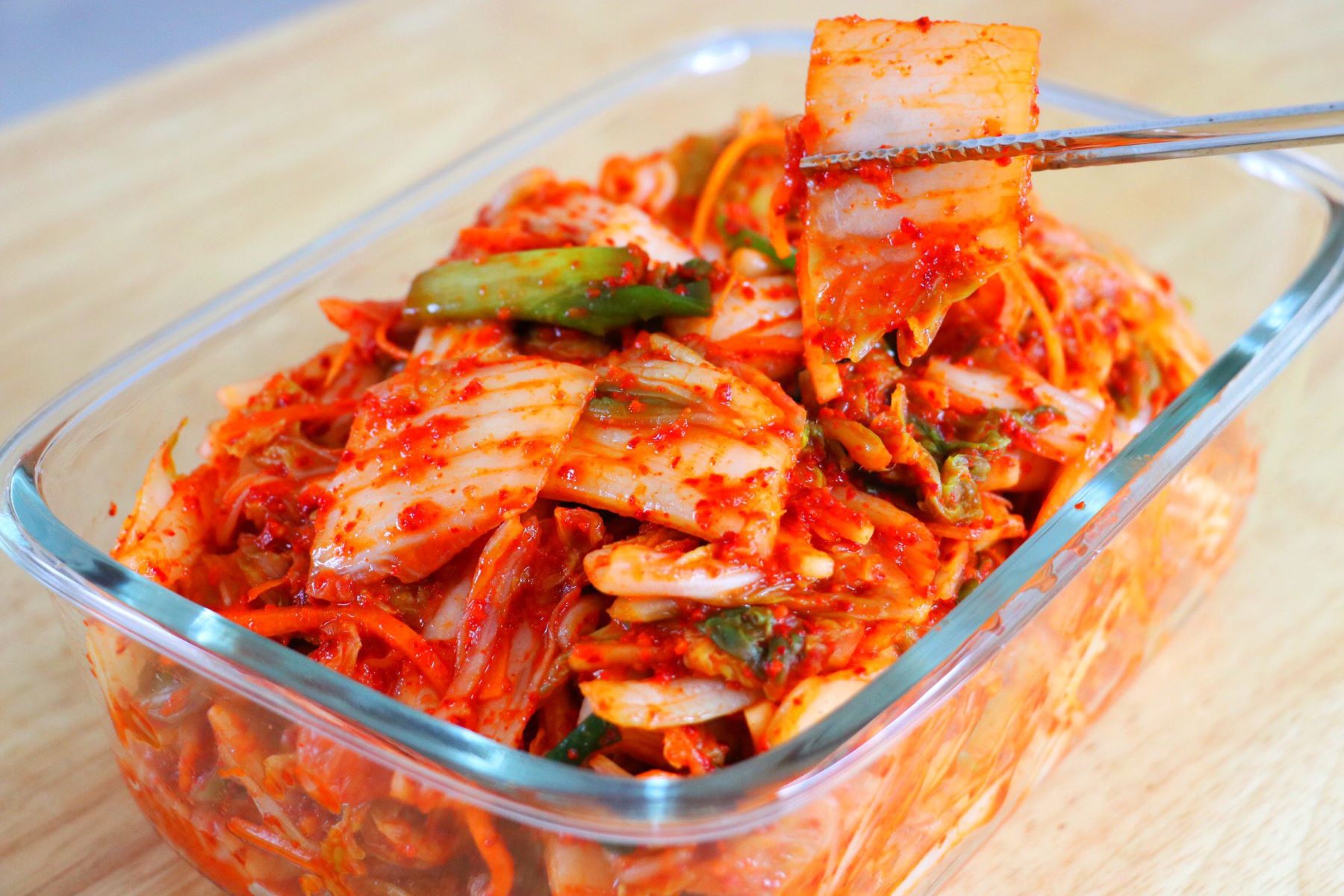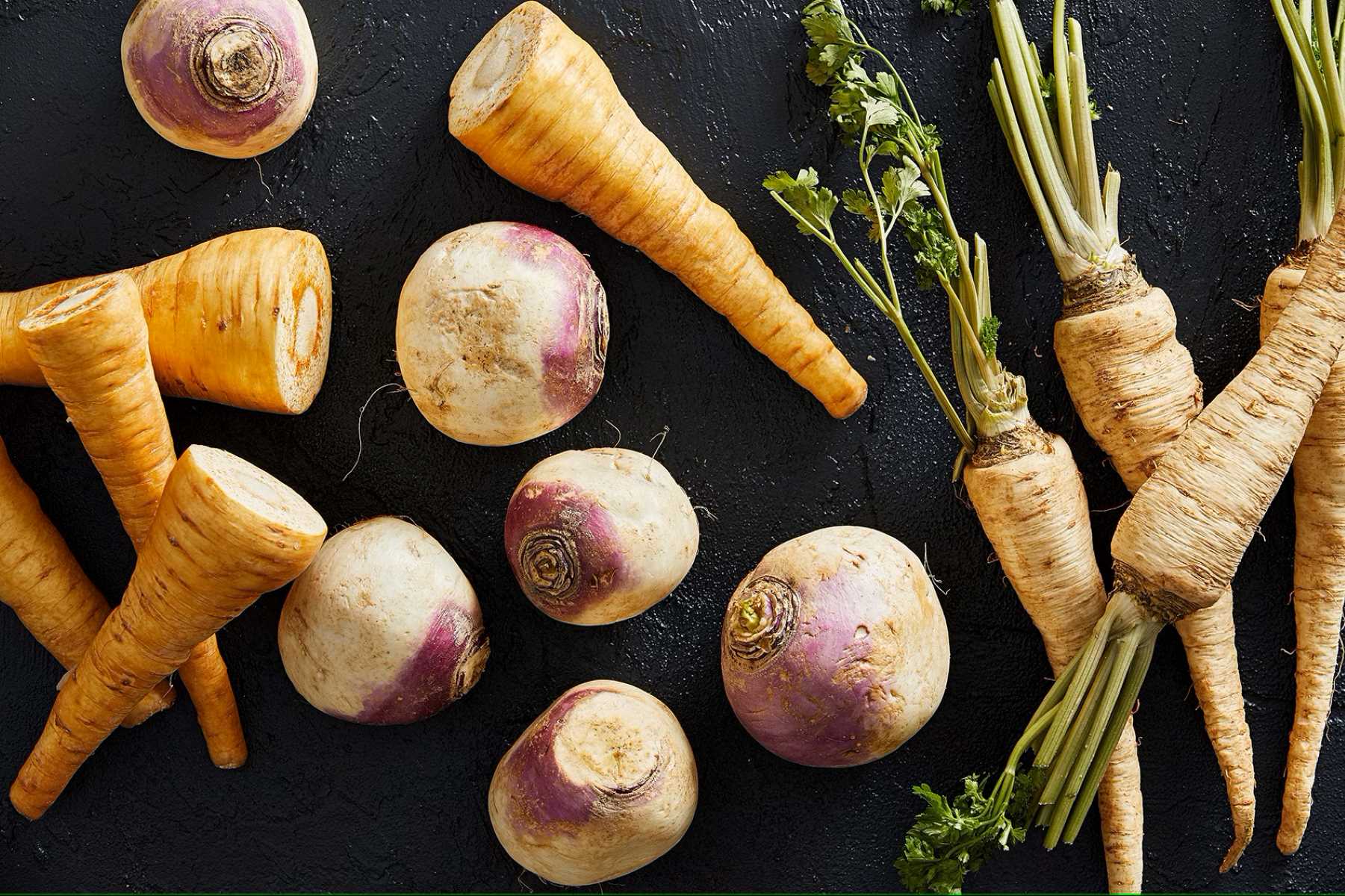Home>Food and Cooking>How To Describe The Taste Of Lychee
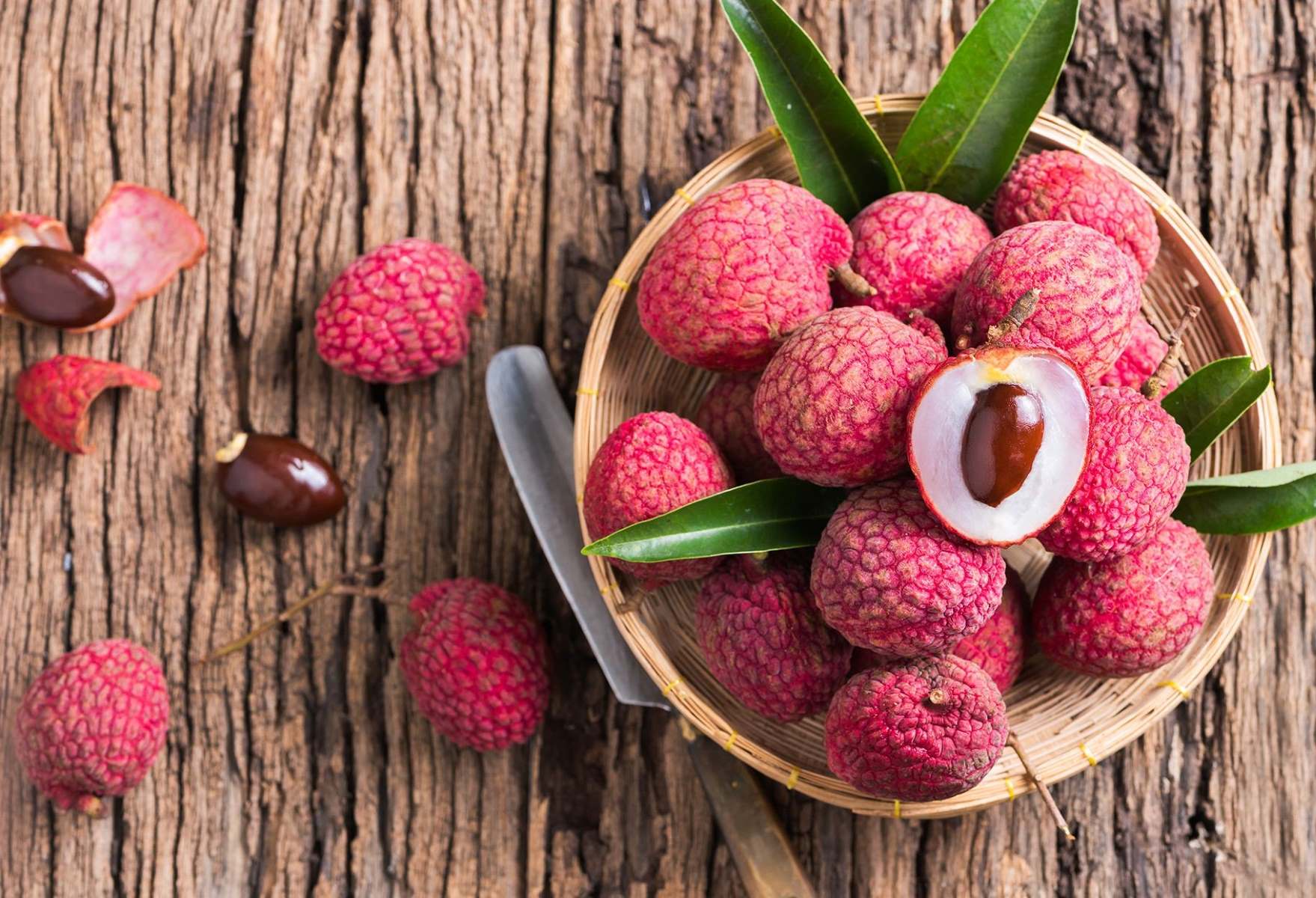

Food and Cooking
How To Describe The Taste Of Lychee
Published: February 28, 2024
Learn how to describe the unique taste of lychee and enhance your food and cooking vocabulary with this helpful guide. Understand the flavor profile and characteristics of this tropical fruit.
(Many of the links in this article redirect to a specific reviewed product. Your purchase of these products through affiliate links helps to generate commission for Regretless.com, at no extra cost. Learn more)
Table of Contents
Introduction
Lychee, a tropical fruit native to China, is renowned for its distinct flavor and aromatic sweetness. This small, round fruit with a rough, reddish-pink shell encases a translucent, juicy flesh that delights the senses. The taste of lychee is often described as a harmonious blend of floral, fruity, and slightly tart notes, making it a unique and sought-after delicacy in various culinary traditions.
In this article, we will delve into the intricate nuances of the taste of lychee, exploring the descriptors that best capture its flavor profile. By understanding the complexities of this delectable fruit, you can better appreciate its culinary versatility and make informed choices when incorporating it into your dishes. Whether you are a seasoned chef or an adventurous food enthusiast, unraveling the taste of lychee will undoubtedly enrich your gastronomic experiences.
Join us on a flavorful journey as we unravel the captivating taste of lychee and discover the myriad ways to savor its exquisite essence.
Read more: How To Pronounce Lychee
The Unique Flavor of Lychee
The unique flavor of lychee is a sensory marvel that captivates the palate with its enchanting blend of floral, fruity, and slightly tart notes. When you bite into a ripe lychee, the first sensation that envelops your taste buds is a delicate floral essence, reminiscent of rose petals or jasmine. This floral undertone infuses the fruit with a subtle, fragrant allure, setting it apart from other tropical fruits.
As you continue to savor the juicy flesh of the lychee, you are greeted by a burst of fruity sweetness that is both luscious and refreshing. The natural sugars present in the fruit create a delectable symphony of flavors, evoking hints of ripe pear, watermelon, and grape. This fruity dimension adds a layer of complexity to the overall taste, making each bite a harmonious interplay of sweetness and succulence.
Amidst the floral and fruity notes, there is a gentle hint of tartness that provides a balancing contrast to the inherent sweetness of the fruit. This subtle tartness, akin to a whisper of citrus, adds a refreshing zing to the flavor profile, ensuring that the taste of lychee is not overwhelmingly saccharine but rather well-rounded and nuanced.
Furthermore, the aromatic quality of lychee contributes to its unique flavor profile. The enticing aroma that emanates from the fruit is reminiscent of a tropical paradise, evoking images of lush orchards and sun-kissed gardens. This olfactory component enhances the overall sensory experience, elevating the enjoyment of consuming lychee to a multisensory delight.
In essence, the unique flavor of lychee can be likened to a captivating melody, with each note harmonizing seamlessly to create a symphony of taste. The interplay of floral, fruity, and tart elements, coupled with its alluring aroma, renders lychee a truly distinctive and cherished fruit in the realm of culinary delights. Whether enjoyed fresh, incorporated into desserts, or infused into beverages, the unparalleled flavor of lychee continues to enchant and enthrall discerning palates around the world.
Describing the Taste of Lychee
The taste of lychee is a sensory marvel that captivates the palate with its enchanting blend of floral, fruity, and slightly tart notes. When you bite into a ripe lychee, the first sensation that envelops your taste buds is a delicate floral essence, reminiscent of rose petals or jasmine. This floral undertone infuses the fruit with a subtle, fragrant allure, setting it apart from other tropical fruits.
As you continue to savor the juicy flesh of the lychee, you are greeted by a burst of fruity sweetness that is both luscious and refreshing. The natural sugars present in the fruit create a delectable symphony of flavors, evoking hints of ripe pear, watermelon, and grape. This fruity dimension adds a layer of complexity to the overall taste, making each bite a harmonious interplay of sweetness and succulence.
Amidst the floral and fruity notes, there is a gentle hint of tartness that provides a balancing contrast to the inherent sweetness of the fruit. This subtle tartness, akin to a whisper of citrus, adds a refreshing zing to the flavor profile, ensuring that the taste of lychee is not overwhelmingly saccharine but rather well-rounded and nuanced.
Furthermore, the aromatic quality of lychee contributes to its unique flavor profile. The enticing aroma that emanates from the fruit is reminiscent of a tropical paradise, evoking images of lush orchards and sun-kissed gardens. This olfactory component enhances the overall sensory experience, elevating the enjoyment of consuming lychee to a multisensory delight.
In essence, the taste of lychee can be likened to a captivating melody, with each note harmonizing seamlessly to create a symphony of taste. The interplay of floral, fruity, and tart elements, coupled with its alluring aroma, renders lychee a truly distinctive and cherished fruit in the realm of culinary delights. Whether enjoyed fresh, incorporated into desserts, or infused into beverages, the unparalleled flavor of lychee continues to enchant and enthrall discerning palates around the world.
Common Comparisons for the Taste of Lychee
Describing the taste of lychee often involves drawing comparisons to familiar flavors and aromas to convey its unique sensory profile. The distinct combination of floral, fruity, and slightly tart notes in lychee has led to various comparisons that capture its essence. Here are some common comparisons that encapsulate the captivating taste of lychee:
-
Rose Water and Perfume: The delicate floral undertones of lychee evoke the essence of rose water and high-quality perfumes. The subtle, fragrant allure of lychee's floral notes is often likened to the elegant and aromatic qualities found in rose-infused products, creating a sensory parallel that accentuates the sophistication of lychee's flavor.
-
Ripe Pear and Watermelon: The fruity sweetness of lychee is often compared to the succulent juiciness of ripe pears and the refreshing crispness of watermelon. These familiar fruit profiles serve as reference points to convey the luscious and thirst-quenching nature of lychee, highlighting its ability to evoke the delightful flavors of other beloved fruits while maintaining its distinct identity.
-
Subtle Citrus Zest: The gentle hint of tartness in lychee is akin to the subtle zest found in citrus fruits such as lemons and limes. This comparison underscores the refreshing and palate-cleansing aspect of lychee's flavor, emphasizing its nuanced interplay of sweet and tangy notes that contribute to its overall complexity.
-
Tropical Paradise: The aromatic quality of lychee often evokes imagery of a tropical paradise, where the air is filled with the scents of exotic fruits and vibrant blooms. This comparison captures the evocative essence of lychee's aroma, transporting the senses to sun-drenched orchards and lush landscapes, enhancing the overall sensory experience of consuming the fruit.
-
Captivating Melody: The harmonious blend of floral, fruity, and tart elements in lychee's taste has been likened to a captivating melody, where each note contributes to a symphony of flavors. This comparison emphasizes the seamless integration of diverse taste profiles within lychee, portraying it as a sensory masterpiece that delights and enthralls the palate.
These common comparisons serve as vivid descriptors that paint a sensory portrait of the captivating taste of lychee, allowing individuals to appreciate its multifaceted flavor profile through familiar and evocative references. Whether experienced in its natural form or incorporated into culinary creations, the taste of lychee continues to inspire awe and admiration, inviting enthusiasts to savor its unparalleled essence.
Factors Affecting the Taste of Lychee
The taste of lychee is influenced by a myriad of factors that contribute to its overall flavor profile, ensuring a diverse and nuanced sensory experience. Understanding these factors sheds light on the complexities of this tropical fruit and enriches our appreciation of its distinctive taste.
-
Ripeness: The stage of ripeness significantly impacts the taste of lychee. Ripe lychees exhibit a perfect balance of sweetness and tartness, with the flesh attaining optimal juiciness and flavor intensity. Unripe lychees may possess a more pronounced tartness and astringency, while overripe ones can become excessively sweet with diminished complexity.
-
Growing Conditions: The environment in which lychee trees thrive plays a crucial role in shaping the fruit's taste. Factors such as soil composition, climate, and sunlight exposure influence the development of sugars, acids, and aromatic compounds within the fruit, ultimately impacting its flavor profile.
-
Varietal Differences: Various cultivars of lychee exist, each with its own unique genetic makeup and flavor characteristics. Some varieties may lean towards a more pronounced floral or fruity profile, while others may exhibit varying levels of sweetness and acidity, offering a diverse range of taste experiences.
-
Harvesting Techniques: The methods employed during the harvesting of lychee can affect its taste. Careful handling and timely picking ensure that the fruit retains its optimal flavor and texture, preserving its delicate balance of sweetness and tartness.
-
Post-Harvest Handling: Proper post-harvest practices, including storage, transportation, and handling, are essential in maintaining the quality and taste of lychee. Temperature control and minimal handling help preserve the fruit's flavor and prevent deterioration.
-
Culinary Applications: The taste of lychee can be further enhanced or transformed through culinary techniques such as cooking, blending, or infusing. When incorporated into dishes, beverages, or desserts, lychee's flavor can be accentuated, complemented, or creatively reimagined, offering a diverse array of taste experiences.
By considering these factors, we gain a deeper understanding of the intricate elements that shape the taste of lychee, from its natural growth and development to its culinary versatility. This holistic perspective underscores the richness and complexity of this beloved tropical fruit, inviting us to savor its multifaceted flavors with newfound appreciation.
Read more: 10 Similes To Describe Pure Happiness
Conclusion
In conclusion, the taste of lychee is a captivating symphony of flavors that intertwines floral, fruity, and slightly tart notes, creating a sensory experience that is both distinctive and delightful. The delicate floral essence, reminiscent of rose petals and jasmine, infuses the fruit with a fragrant allure, setting it apart from other tropical fruits. The burst of fruity sweetness, evoking hints of ripe pear, watermelon, and grape, adds a layer of complexity to the taste, while the gentle hint of tartness provides a refreshing zing, ensuring a well-rounded and nuanced flavor profile. Furthermore, the aromatic quality of lychee enhances the overall sensory experience, elevating the enjoyment of consuming the fruit to a multisensory delight.
Describing the taste of lychee often involves drawing comparisons to familiar flavors and aromas, such as rose water, ripe pear, watermelon, subtle citrus zest, and the imagery of a tropical paradise. These comparisons serve as vivid descriptors that paint a sensory portrait of the captivating taste of lychee, allowing individuals to appreciate its multifaceted flavor profile through familiar and evocative references.
Moreover, the taste of lychee is influenced by various factors, including ripeness, growing conditions, varietal differences, harvesting techniques, post-harvest handling, and culinary applications. Understanding these factors sheds light on the complexities of this tropical fruit and enriches our appreciation of its distinctive taste, offering a diverse and nuanced sensory experience.
In essence, the taste of lychee transcends mere gustatory pleasure; it embodies a harmonious blend of nature's finest offerings, inviting us to embark on a flavorful journey that stimulates the senses and evokes a profound appreciation for the wonders of gastronomy. Whether enjoyed fresh, incorporated into culinary creations, or savored in the form of beverages, the unparalleled flavor of lychee continues to enchant and enthrall discerning palates around the world, leaving an indelible impression that lingers long after the last delectable bite.


